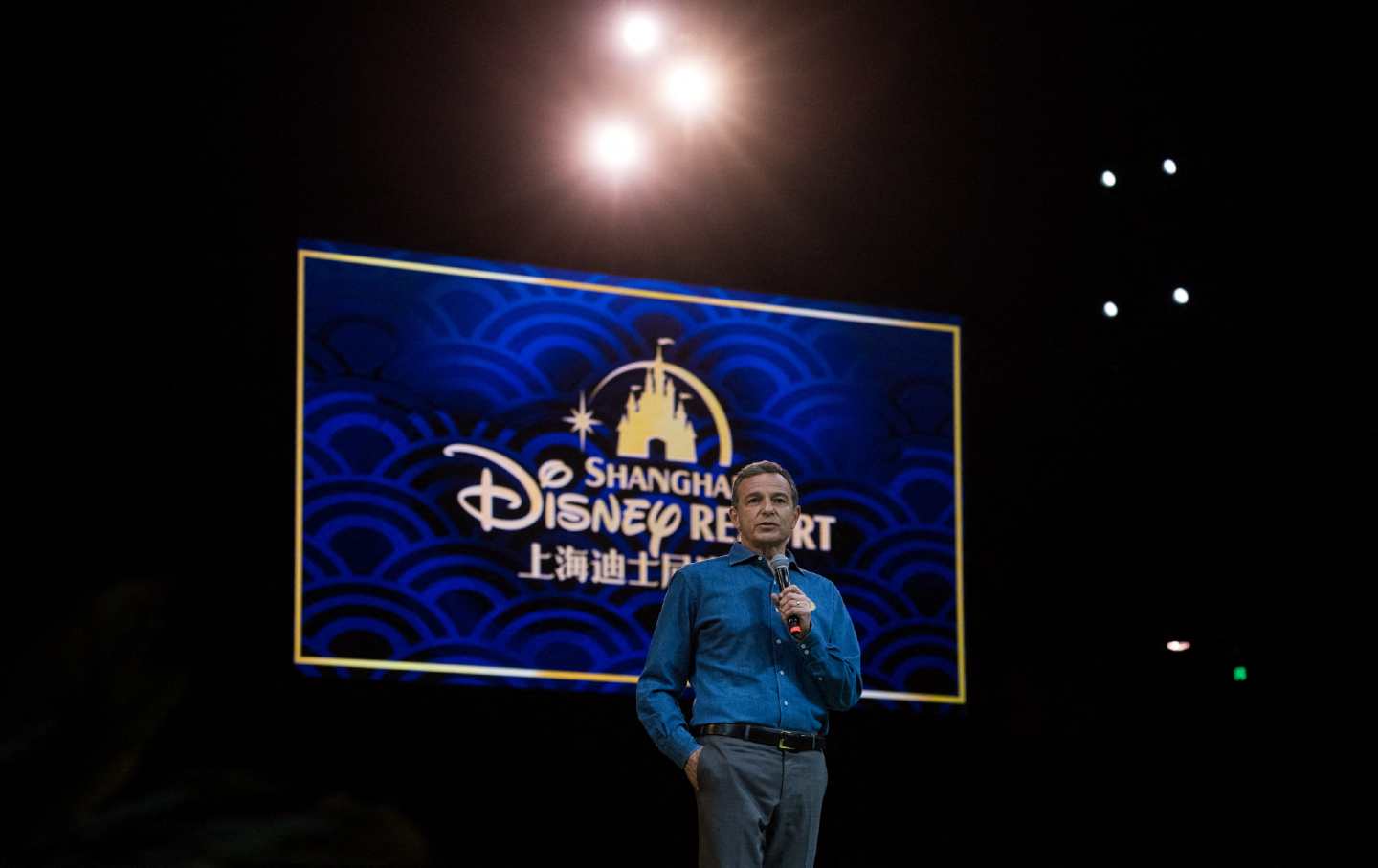
Last night, Jimmy Kimmel made a heartfelt return to *Jimmy Kimmel Live!* after what was described as an “indefinite” suspension from ABC. The abrupt reversal of this decision by the Disney Corporation came in response to significant backlash, particularly from social media users, including former Disney CEO Michael Eisner. According to entertainment correspondent Kim Masters from *Puck*, Eisner’s comments, while not explicitly naming anyone, were clearly directed at Kimmel’s current boss, Robert Iger.
In a pointed post on X.com, Eisner lamented, “Where has all the leadership gone?” He criticized corporate executives for not standing up against bullying and intimidation. His remarks highlighted the recent pressure Disney faced from right-wing threats following Kimmel’s critical comments about the Trump administration’s response to the assassination of conservative commentator Charlie Kirk. Eisner’s reference was to Brendan Carr, the Trump-appointed chairman of the Federal Communications Commission (FCC), who had issued veiled threats against Disney regarding the Kimmel situation. Carr stated in an interview, “We can do this the easy way or the hard way,” implying that Disney could either discipline Kimmel or face repercussions from the FCC.
The timing of Kimmel’s suspension coincided with Sinclair Media and Nexstar, two media companies that own ABC affiliates in numerous major markets, announcing they would no longer air his show. With this backdrop, Disney’s decision to suspend Kimmel seemed less about principle and more about appeasing the demands of powerful interests.
As reported by Masters, the intricate relationship between Eisner and Iger, marked by competition and conflict, played a role in Iger’s eventual decision to reverse the suspension. Whether driven by conscience or the desire to protect his legacy, Iger had to weigh the potential losses from alienating Kimmel against the implications of bowing to intimidation from right-wing factions. In a landscape where Disney is already grappling with declining subscribers for its streaming services, the costs of Kimmel’s suspension may have seemed too high.
Disney’s corporate history with intimidation tactics is not new. The company previously paid a whopping $15 million to settle a defamation lawsuit brought by Trump against George Stephanopoulos, demonstrating how financial considerations often trump ethical ones. The company seems to have finally realized that yielding to bullies may lead to a cycle of demands that could jeopardize its broader interests.
Kimmel’s reinstatement is not just a win for the comedian; it also serves as a reminder of the cultural responsibilities that come with Disney’s enormous influence. The company’s past actions, especially Eisner’s decision to capitulate to China’s demands regarding artistic expression, have left a lasting scar on its legacy. Notably, Eisner’s era saw the silencing of filmmaker Martin Scorsese, who directed *Kundun*, a film about the Dalai Lama and Tibet’s plight that faced significant pushback from Chinese authorities.
In 1996, when Scorsese’s *Kundun* was in production, Disney executives received a call from the Chinese Embassy, expressing their discontent over the film’s subject matter. This prompted Disney to engage Henry Kissinger as an advisor, showing the lengths to which the company would go to maintain its business interests in China. Ultimately, Disney decided to minimize the film’s release and marketing, a strategy that not only limited *Kundun*’s exposure but also sent a message to Hollywood about the consequences of artistic integrity in the face of economic pressure.
Eisner’s decision to bury *Kundun* was emblematic of a broader trend in Hollywood, where studios have increasingly avoided controversial topics that might offend Chinese authorities. This has resulted in a silence surrounding issues like Tibet, which was once a hot-button topic in American culture. The erasure of such narratives from mainstream media reflects a troubling reality where economic interests often overshadow moral considerations.
The repercussions of Eisner’s capitulation resonate to this day. The American conversation surrounding Tibet has dwindled, and creative expressions that challenge authoritarian regimes are frequently suppressed in favor of profit. In a notable instance, the character of the Ancient One in Marvel’s *Doctor Strange* was changed from a Tibetan monk to a Celtic woman to appease Chinese sensitivities, demonstrating how deeply embedded these compromises have become in the industry.
As Kimmel returns to his show, it is crucial to acknowledge the broader implications of his suspension and reinstatement. If Disney’s decision was indeed influenced by Eisner’s public comments, it highlights a glimmer of hope for corporate accountability in the face of political bullying. Perhaps Iger was driven not only by a desire to protect his legacy but also by a recognition that a company like Disney holds considerable power to shape cultural discourse.
As society grapples with issues of free speech and artistic freedom, the lessons learned from Kimmel’s experience and Disney’s past dealings with authoritarian regimes are more relevant than ever. The question remains whether corporations will choose to stand firm against intimidation or continue to bow to pressures that threaten the very fabric of artistic expression. Kimmel’s return is a small victory in the ongoing struggle for creative freedom, but it also serves as a reminder of the challenges that lie ahead in a landscape increasingly dominated by corporate interests.


